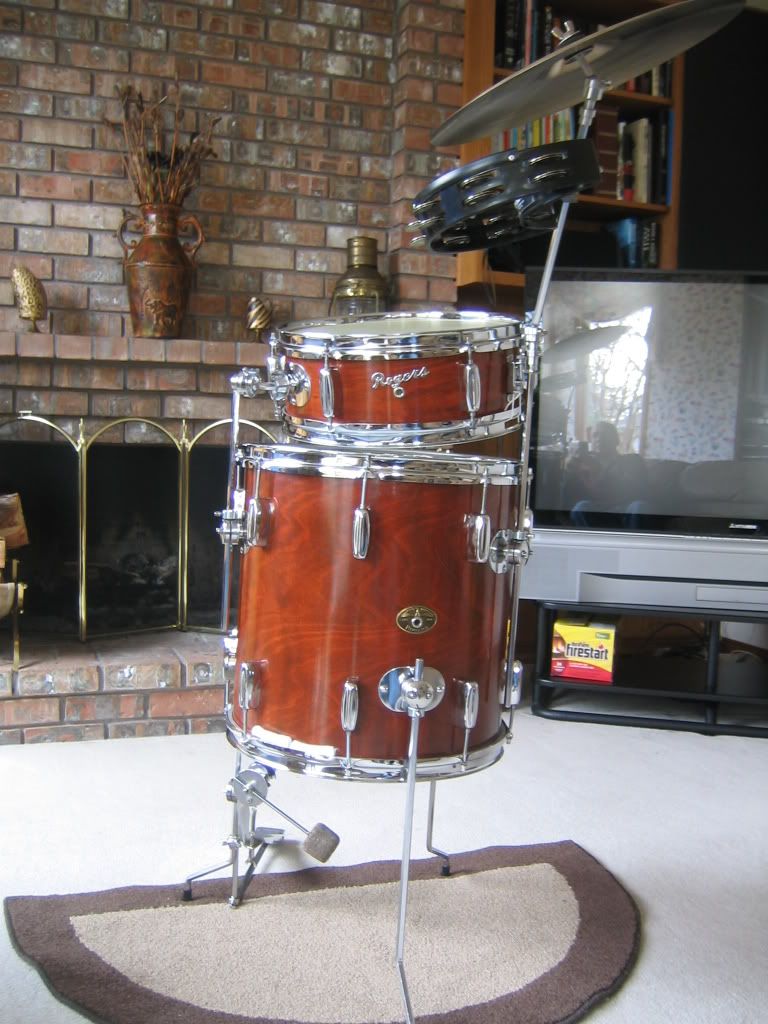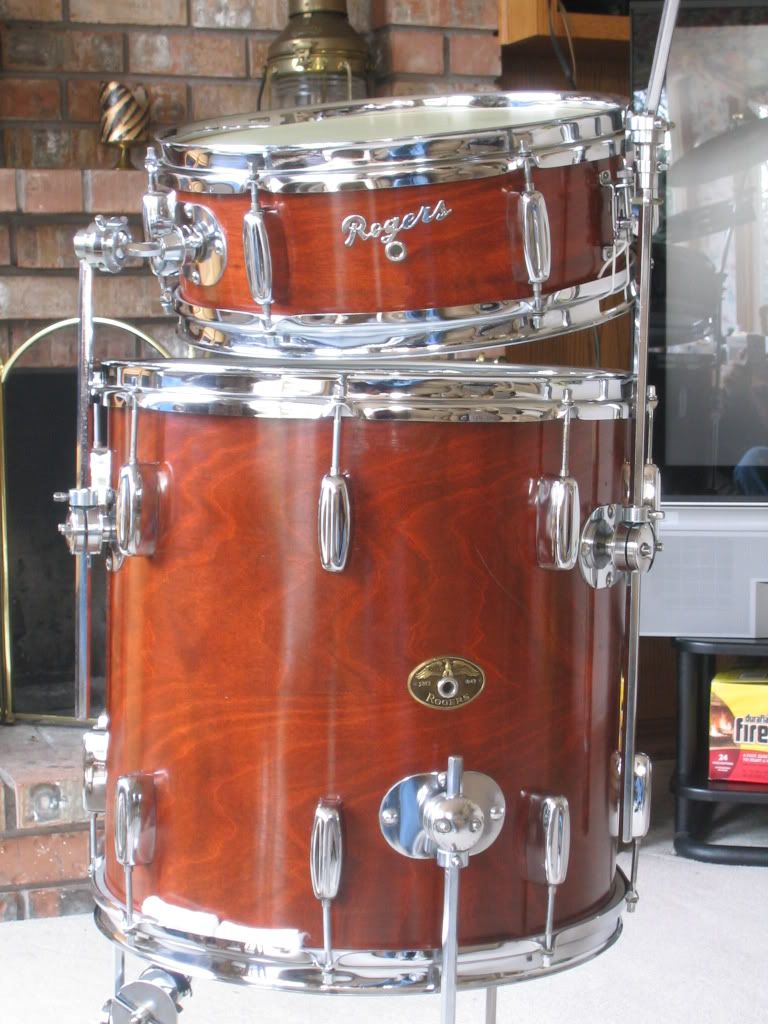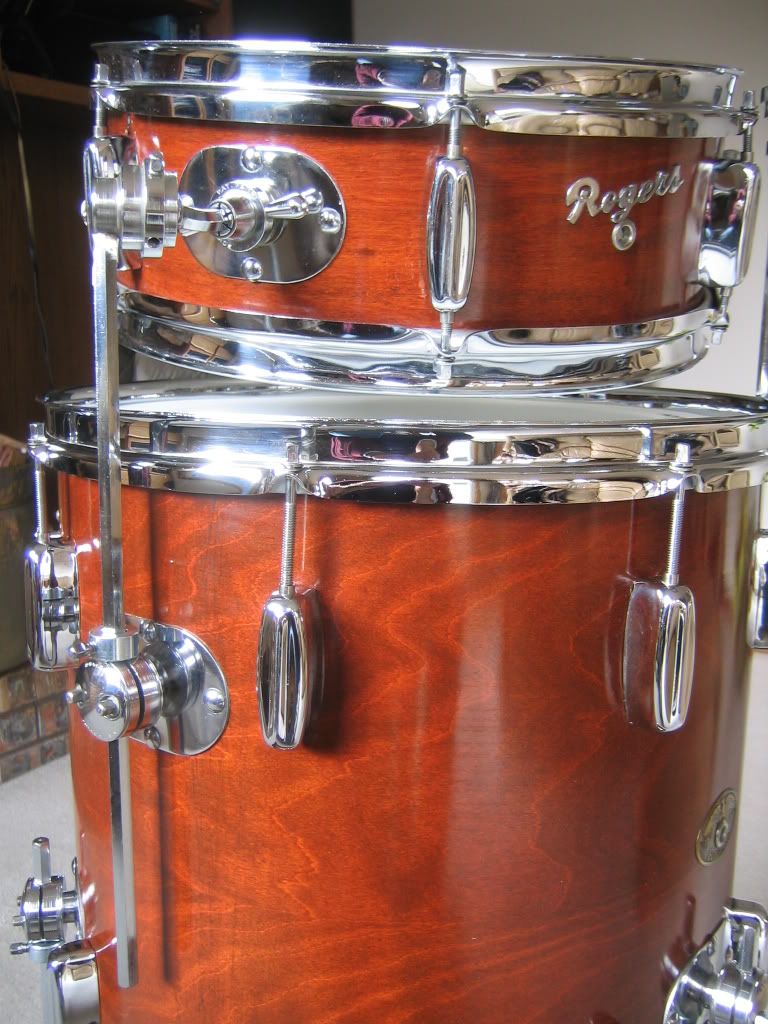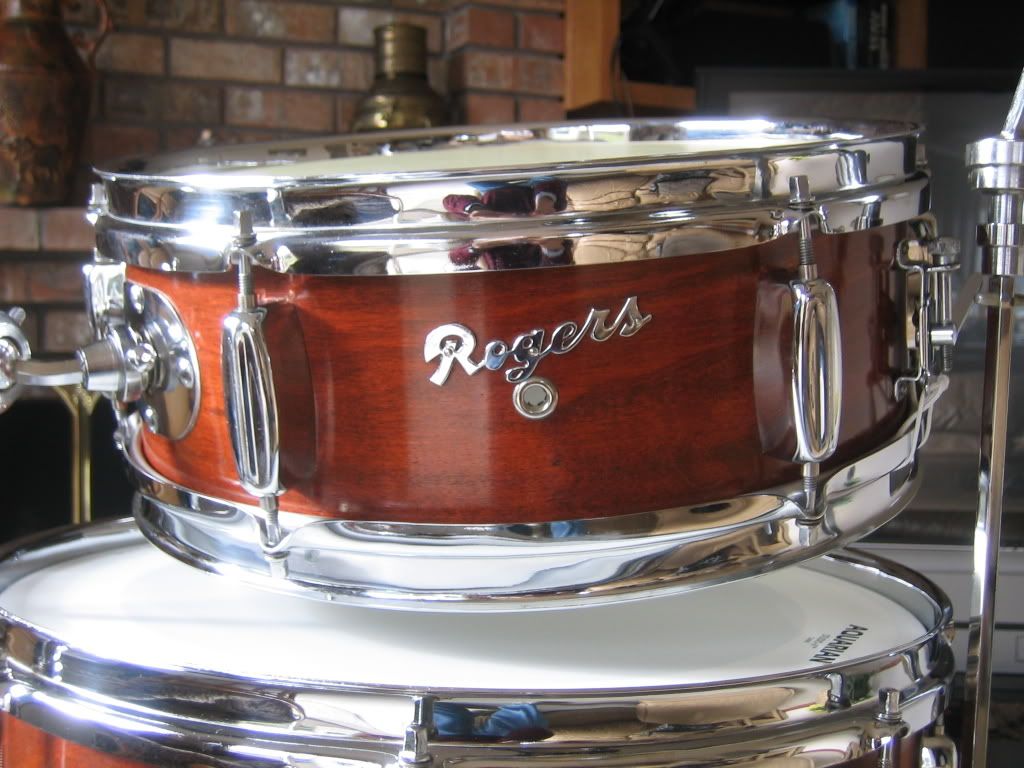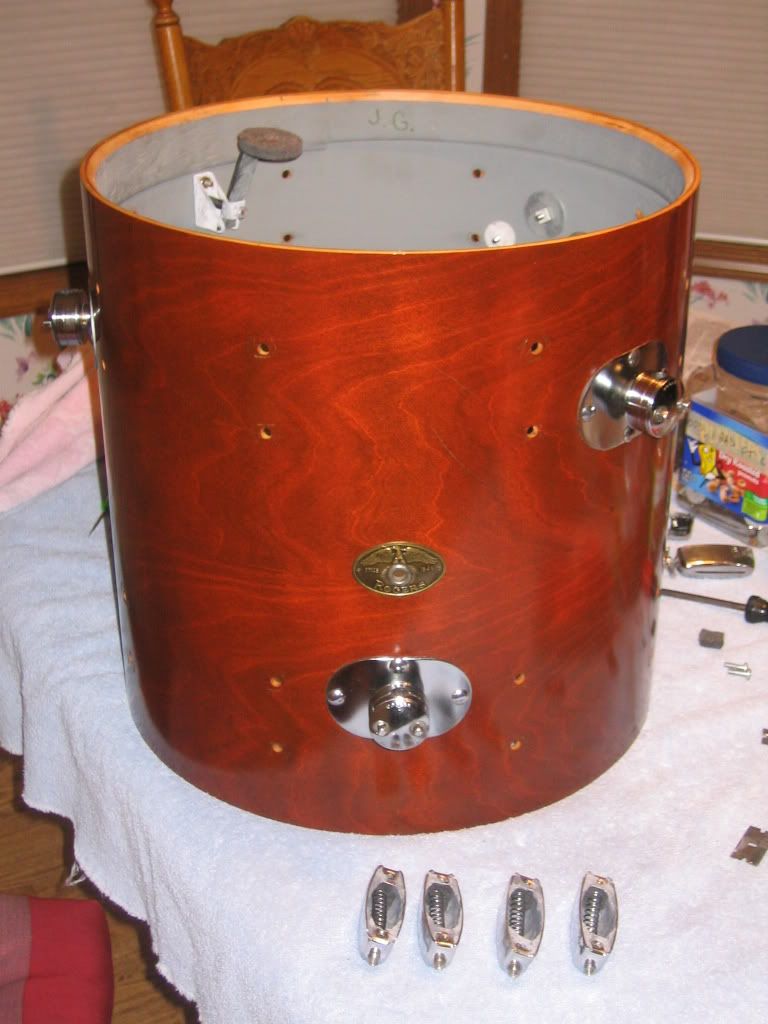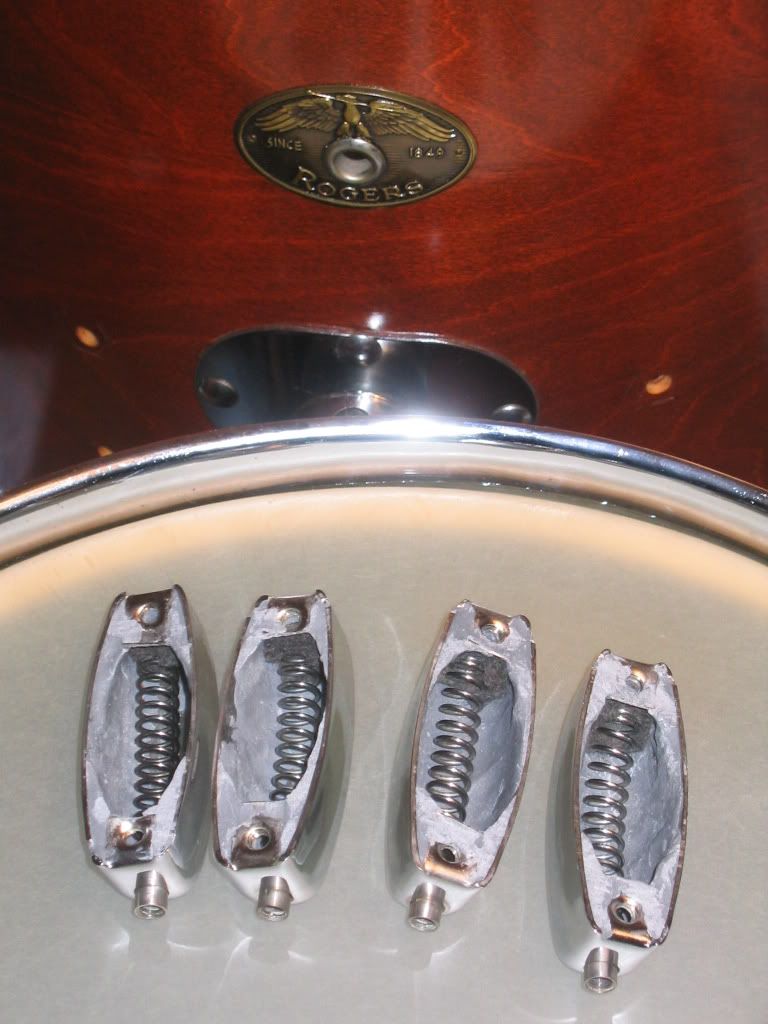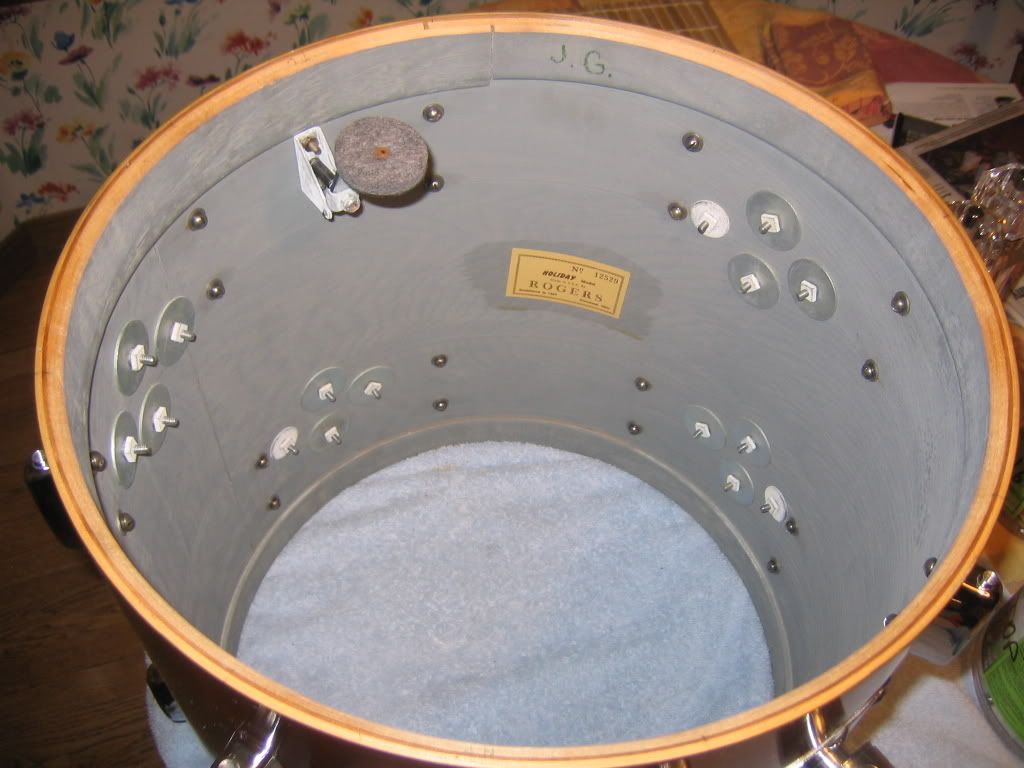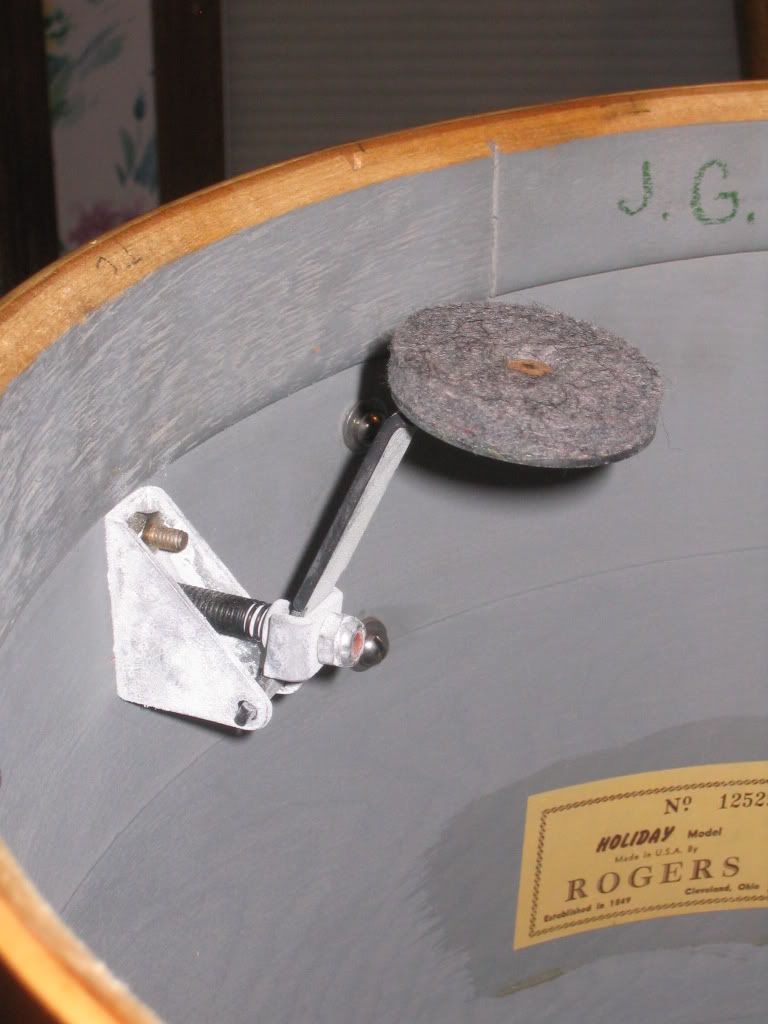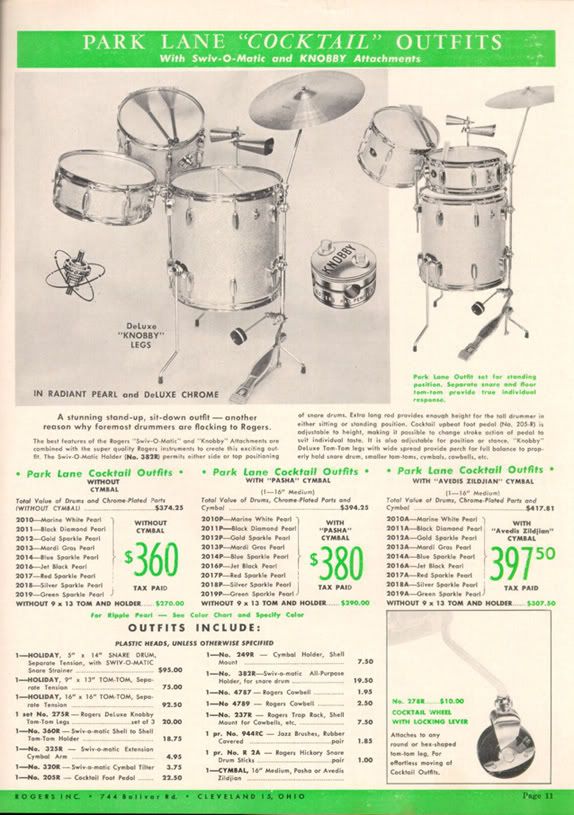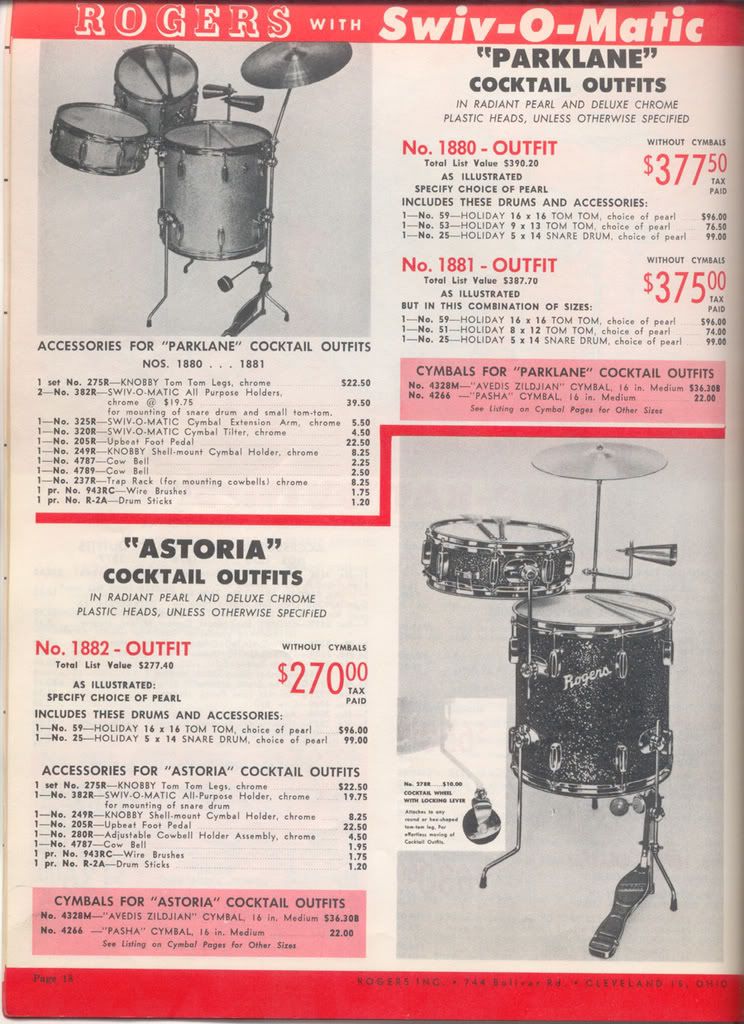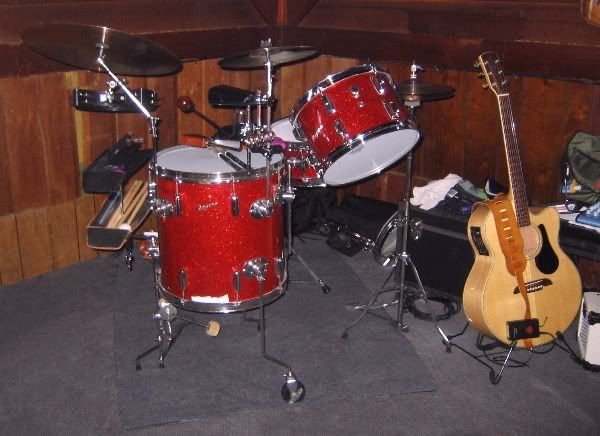Rogers "pirate script" transition badge/Eagle badge. One of the first Swivomatic sets produced, circa late 1957 or early 1958. The Swivo plates do not have "Rogers" on them. Special order mahogany finish was not offered in the catalog for this model.
I reinforced the 8 lugs on the batter side of the floor tom. The bottom 8 and the snare 6 are uncracked original lugs. I'm not too worried about cracking, as I'm tuning this loose, the way it was done back in the day. Remo Renaissance Diplomat on the batter side doesn't need much tightness, about 79-80 on the drum dial. The Renaissance is Remo's resin-based calfskin imitation.
Note that these drums use the large B&B lugs on both snare and FT. They are 2 ply Jasper shells plus the mahogany veneer layer (which makes them light as a feather) plus 3 ply rerings and rounded bearing edges, which give them a unique '50s jazz sound, suitable for tasty brush strokes or subtle, rudimentary jazz or blues stickwork.
I have it set up to play in "standing" position, but the snare can easily be swiveled and lowered to access the tom top batter. The Swivomatic fittings and rods that allow this are especially cool.
